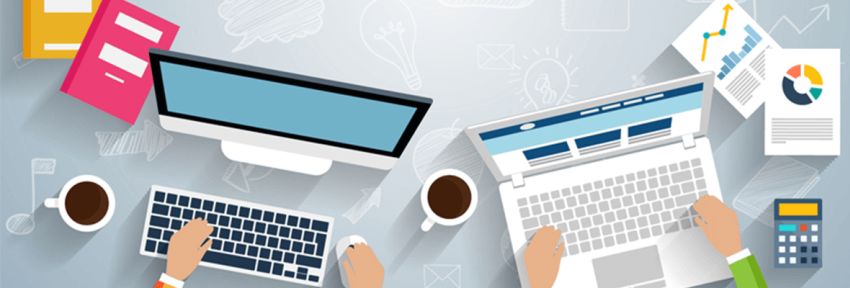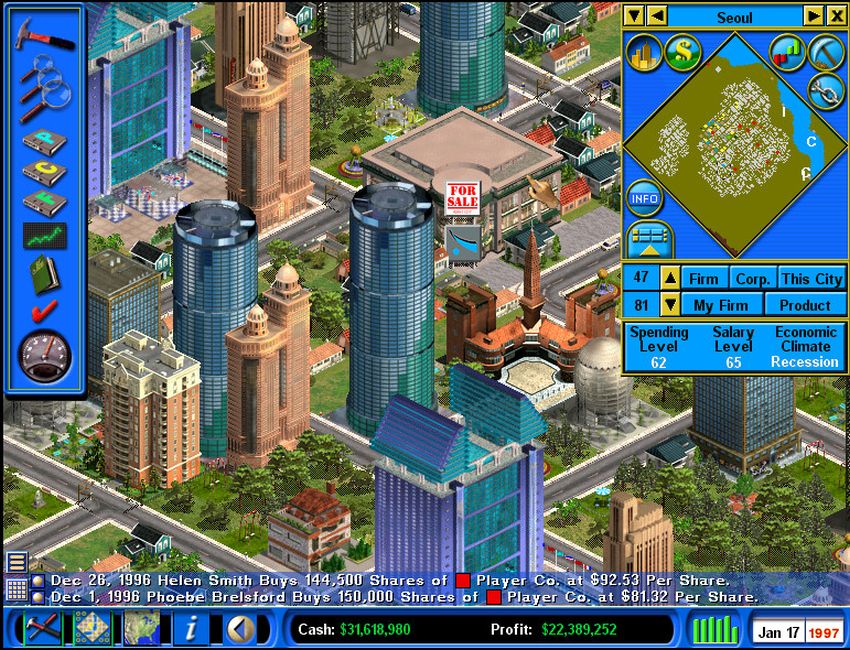Young people studying economics and business have to process large information volumes, memorize complex theories and approaches. Writing academic papers and reading textbooks may be rather exhaustive and boring. It is not always clear what is all needed for this routine. Business simulation games which have skyrocketed over the last few years may compensate for the drawbacks of the traditional educational system. Experts from Pro-Papers have analyzed the most important features such learning tools and provided a detailed review in this article.
Page Contents
What is an economic game?

source:www.academyone.com
An economic game is a board or virtual simulation providing a balanced mixture of strategy and chance, reflecting a real business environment, boosting critical thinking and practical skills. Players can experiment, make observations, participate in the market competition, cooperate with each other, negotiate on profitable deals, try different roles in order to understand which position they want to occupy in life, learn how to launch businesses, manage resources, and maintain supply chains. Acquiring hands-on experience in a simulator ensures smooth career start and protects students from possible mistakes and financial loses.
The first economic games were incorporated in the educational process in the 1960s after US Army has successfully applied similar approaches for training soldiers. As time passed, the number of universities using board games for business education grew. Technology development acted as an impetus for creating digital simulations which continue evolving and gaining popularity in the academic world. Prestigious educational institutions like Harvard and huge organizations like Coca-Cola actively use them.
Advantages of economic games
Active and experiential learning

source:www.laprensa.hn
The theory is important, but it is useless without practice. Students should understand why they attend lectures and do homework, spend their time and energy on education. A business simulation is a great platform for reinforcing theoretical knowledge, addressing challenging issues, making independent risk free decisions, trying different strategies, observing the consequences of steps taken, exchanging ideas with classmates, and satisfying communication needs. Learning by doing is engaging and fun, stimulates academic enthusiasm much better than other educational activities, such as reading, writing, or watching videos.
Developing holistic thinking
When studying economics at university, students keep only one goal in mind: to pass exams. After receiving a good mark, all concepts considered at lectures may be forgotten. Young people do not see the links between different topics and disciplines. That is why knowledge received seems insignificant.
Economic games involve all person’s experience, show the interconnectedness of business processes, turn learners into specialists with broad outlook able to assess challenges posed in front of them holistically, take into account the slightest nuances, seek the most beneficial solutions, and understand how they affect all aspects of enterprise’s operation.
Students realize that there are no departments working in a silo in companies and no details not influencing the overall result, approach learning more responsibly, understand that theories which were previously perceived as useless may become efficient entrepreneurial tools in the future, help a person to see a big picture of a big company and achieve great success.
Economic games are suitable for any learning format

source:store.steampowered.com
As mentioned above, there are board and electronic business simulations. Board versions are often used at seminars as practical exercises. Their electronic substitutes may be installed on a computer, downloaded to a smartphone-like apps, or accessed in a browser. In the latter case, it is just necessary to have an Internet connection.
Virtual games may be used anywhere, anytime. If a group session in planned, participants may agree on a convenient time. If a student plays alone, one is free to tailor a learning schedule to one’s liking.
No IT knowledge is required
Modern economic games are intuitive, provide tips and explanations for each function. Beginners get detailed instructions for making the first steps, and then system supports their progress from session to session. Software is updated automatically when developers come up with some improvements.
Low expenses
Gamification seems to be quite cheap innovation. Even though app development may be costly, once created, simulations require no spending.
Collaboration and intercultural exchange

source:www.videoblocks.com
Some games have an extensive user network. There are always people online ready to share a gaming session. It is a great chance to make friends with business students from different universities, cities, and countries. They may exchange experience and communicate on forums, inform each other about international learning programs, competitions, and scholarships.
Also, universities may organize tournaments, allowing teams from different educational institutions to fight for victory. Such activities should stimulate healthy competition, teach young people to work in a team, and create conditions close to the real market where companies fight for leading positions. This should be the beginning of the cyber sport in the academic world.
Examples of economic games

source:www.youtube.com
Pay attention to the game “Capitalism” first issued in 1995. Today, it is a business simulation classic, a part of the Stanford and Harvard curriculum. Students get an idea of challenges which may be faced in different economy sectors and enterprises, learn to hold marketing campaigns, manufacture, distribute, import, and export goods. In 2012, the game was reissued as “Capitalism Lab”.
One more popular economic simulator is “SimCity”. Players create cities, manage infrastructure, dispose of budgets, and regulate taxes to satisfy citizens’ needs.
History lovers would like “Merchants” popular in companies around the globe. It transports players to medieval Venice and allows them to negotiate on trading contracts.





